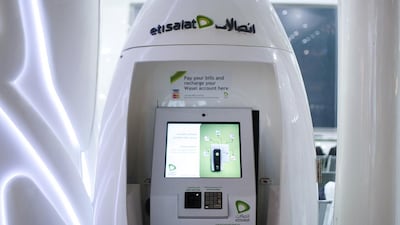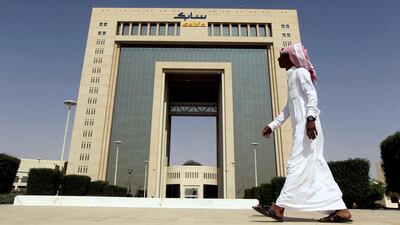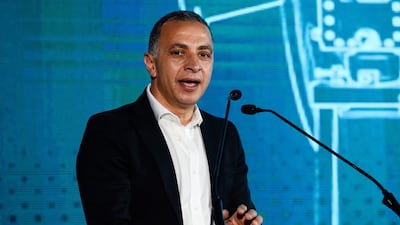The 10th edition of 100 companies from emerging markets that have “stood the test of time” by The Boston Consulting Group (BCG) this year highlights six Mena firms – including Etihad Airways and Egypt’s Elsewedy Electric – the most ever to appear on the list.
The BCG annual listing covers 100 firms that are rapidly expanding and globalising and this year's report, titled Global Leaders, Challengers, and Champions: The Engines of Emerging Market, marks the 10-year anniversary of the first publication of its rollcall of global challengers.
This year it features Emirates Global Aluminum, Etihad Airways, Etisalat, Elsewedy, Qatar Airways and Sabic, which BCG said have “moved into the global spotlight, and reshaped the landscape of their industries – and of key geographic markets”.
“The global challengers are the leading edge of a much larger group of companies from emerging markets that, despite economic uncertainty, are powering ahead with confidence and ambition,” said Cristiano Rizzi, a partner and managing director in BCG’s Dubai office.
From 2009-2014, the 2016 global challengers from the Middle East have grown about 1.5 times in revenue size – and some companies such as Emirates Global Aluminum and Qatar Airways have even dramatically doubled in size, the report said. Overall, global challengers from the region have witnessed their revenues rise from approximately US$80 billion to $133bn – which constitutes nearly 6 per cent of the Middle East’s total 2014 GDP of $2.2tn. Moreover, they have managed to maintain higher gross margins and revenue CAGRs than many emerging markets such as Latin America and Africa, according to BCG.
“Challengers from the Middle East have been particularly successful in delivering growth and profitability – and most have also managed to create exceptional shareholder value, especially compared to their local and global peers,” added Mirko Rubeis, another partner and managing director in BCG’s Dubai office. “In fact, in terms of profits, between 2005 and 2014, global challengers from the region achieved a growth rate approximately 1.5 times greater than S&P 500 companies and global peers.”
In that very time frame, Middle East challengers generated an earnings before interest and taxes (ebit) margin of 16 per cent; in parallel, S&P 500 companies and global peers, achieved a margin of 12 per cent and 11 per cent, respectively, BCG said.
This year, BCG said the Middle East is also home to two “graduate” companies, Saudi Aramco and Emirates. These international players – both of whom were featured in the 2014 roster of graduates – are becoming true global leaders in their respective fields. These graduates share five key attributes, BCG said, that include having an ambitious global vision, global culture and commitment to global standards; a globally scalable operating model with an optimised footprint; globally competent leaders and a powerful global talent acquisition and development strategy; a go-to-market model with a clear globalisation market plan; and the ability to place innovation and reinvention at the core of their business.
For example, it said, Emirates has, since its founding, strongly emphasised innovation and global branding. It has become a world-class airline by providing a superior passenger experience. And it has reported a remarkable record of 26 consecutive profitable years. As for Saudi Aramco, it is, today, the largest integrated global petroleum enterprise in the world, with ventures all over the world.
The challengers from the region also all made it into the 2014 list. Saudi Arabian chemicals giant Sabic is the largest public company in the kingdom operating in chemicals, polymers and fertilizers – it boasts more than 100 offices worldwide. This year marks the fifth time that both Sabic and Egypt’s Elsewedy, a leading manufacturer of electrical wires and cables, achieve the status of “global challenger”. Both companies continue to impress with their scale and international market positions, BCG said.
Etihad and Qatar Airways, two of the fastest-growing airlines in the Middle East, also made both the 2013 and 2014 lists. In recent years, both airlines have succeeded in leveraging the region’s favourable geostrategic location as a transportation hub at the crossroads of Asia-Pacific, Europe, and Africa.
Etisalat, the region’s largest telecommunications operator, and Emirates Global Aluminum, one of the world’s five largest aluminium companies, were included in BCG’s 2014 list of 100 Global Challengers. Etisalat serves approximately 11 million customers in the UAE and operates in 17 countries. Looking ahead, Emirates Global Aluminum’s growth shows no sign of abating; the company has actually rolled out international expansion plans, said BCG.
Over the past decade, the list of challengers from the GCC indicates that airlines from the region have a positively disproportionate share of the airline sector, especially compared to other emerging markets. The reality is, in the past 10 years, Middle East carriers have led [regional] revenue growth in the airline market.
“In the last decade, [regional] carriers have increased their share from one fifth to one third of the global market – and from 2005-2014, they have essentially tripled their revenue from $80bn to $240bn,” said Pablo Martinez at BCG Middle East. “This is all thanks to Middle East carriers who have largely benefited from their hubs, which serve long-haul markets that were less affected by the global financial crisis,”
Today, Middle East carriers make up a staggering 67 per cent – versus 60 per cent in 2013 and 50 per cent in 2011 – of BCG’s airline-specific list of global challengers
There are three main reasons why Middle East carriers have remained on a solid growth path:
“Middle East airlines have a cost competitive structure. They are committed to quality service and are consistently ranked among the top 10 in various airline rankings. They implement powerful marketing plans or campaigns and leverage sports sponsorship deals to increase brand awareness, boost loyalty and promote new destinations,” said BCG.
As global challengers look to expand in a slower-growth world, they will face increasing competition not just from multinationals but also from homegrown rivals, the report said.
BCG identified an impressive 103 companies based in the Middle East that, while not qualifying as global challengers, are still successful, growing, high-profit companies. These companies – the “champions” – tend to be smaller than the challengers but still highly profitable and fast-growing.
From 2005-2014, these Middle East champions have doubled their growth in revenue from $69bn to $177bn – which represents about 6 per cent of the region’s overall GDP, BCG said. Interestingly, in terms of annual revenue growth rates, these champions have also outperformed S&P 500 companies and global peers. In those nine years, they achieved an annual revenue growth rate of 11 per cent versus 6 percent for S&P 500 companies and 4 per cent for global peers, it added.
Furthermore, Middle East champions have managed to maintain exceptionally high profit margins; between 2005-2014, they generated an ebit margin of 29 per cent.
BCG said these champions represent the next frontier of competition and value creation in emerging markets. If the last decade has been about the global challengers coming of age, the next decade will see a much broader range of companies arising as economic engines.
business@thenational.ae
Follow The National's Business section on Twitter






